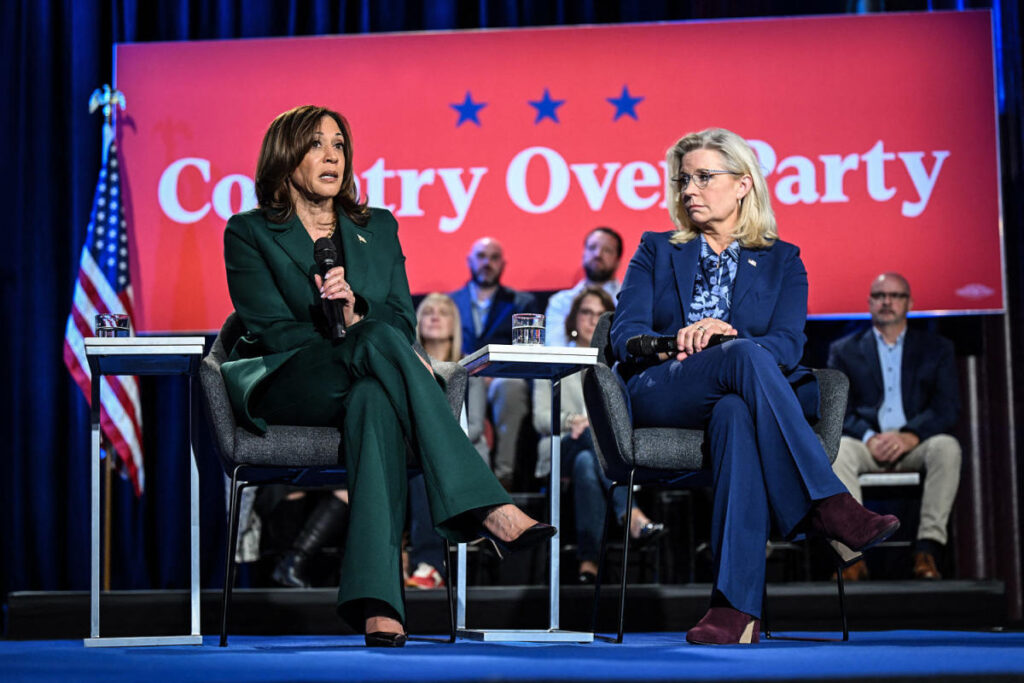Vice President Kamala Harris is strategically amassing Republican endorsements in Wisconsin, a pivotal swing state that has become central to her outreach efforts directed at voters who may be hesitant about Donald Trump. Recently, she has garnered public endorsements from notable figures such as Robert Cowles, the longest-serving state senator, and Shawn Reilly, the former Republican mayor of Waukesha, a significant GOP stronghold. With both Harris and Trump planning extensive campaign stops in the state during the final week leading to the election, it is clear that Wisconsin—known for its narrow electoral margins—is a key battleground for both campaigns.
This trend of Republican endorsements for Harris marks a broader strategy to appeal to disaffected Republicans and independents. The momentum began to build last month when Liz Cheney, a well-known former representative and critic of Trump, publicly expressed her support for Harris at an event in Wisconsin. Cheney humorously noted her long-standing Republican affiliation, while emphasizing that this election will be different: “I have never voted for a Democrat, but this year I am proudly casting my vote for Vice President Kamala Harris.” By holding events in historical Republican strongholds, such as Ripon—recognized as the birthplace of the Republican Party—Harris aims to resonate with areas where anti-Trump sentiment runs deep.
Harris’ campaign has strategically focused on suburban areas where Nikki Haley, a former governor who remained the last credible Republican challenger to Trump, showed substantial support in the primaries. The Harris campaign’s “Republicans for Harris” initiative is aimed at engaging moderate Republicans and independents, emphasizing themes of unity and a departure from Trump’s divisive politics. Austin Weatherford, who leads Republican engagement for the campaign, highlights the goal of attracting “millions of Republicans who are ready to turn the page” on the perceived chaos of the Trump administration.
One of the co-chairs for this effort in Wisconsin, Tracy Ann Mangold, exemplifies the cross-party appeal Harris is seeking. Prioritizing the Constitution over party lines, Mangold identifies the evolution of the Republican Party into a less inclusive entity compared to the current Democratic Party. She is actively working with the Harris campaign to recruit more Republican endorsements, conduct door-to-door outreach, and host phone bank events to engage potential Harris voters. This grassroots effort underscores a strategic focus on connecting with Republicans who might be disenchanted with Trump’s leadership.
In sharp contrast, the Trump campaign has downplayed Cheney’s endorsements and labeled her as “irrelevant,” further illustrating the polarization within the GOP. This dismissiveness toward critiques from within the Republican Party indicates an entrenched stance among Trump’s supporters. Meanwhile, other Wisconsin Republicans, including former Assembly member Sheehan Donoghue and former sheriff Steve Michek, have also joined the endorsement wave for Harris, indicating a growing faction of Republican dissent against Trump.
Shawn Reilly’s endorsement, especially impactful given his leadership in Waukesha County—a significant Republican base—serves as a robust repudiation of Trump’s candidacy. His candid sentiments reflect a broader anxiety among some Republicans about the potential consequences of a Trump presidency, highlighting concerns about his impeachment history and recent felony charges. The emphasis on local endorsements from trusted figures like Reilly and Cheney signals Harris’ commitment to building a coalition of support among voters traditionally aligned with the Republican Party, challenging the norm in this highly polarized political landscape.

